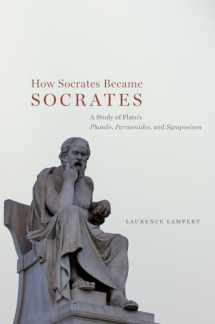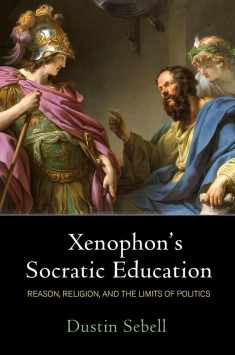
How Socrates Became Socrates: A Study of Plato’s “Phaedo,” “Parmenides,” and “Symposium”
Book details
Summary
Description
Plato dispersed his account of how Socrates became Socrates across three dialogues. Thus, Plato rendered his becoming discoverable only to readers truly invested. In How Socrates Became Socrates, Laurence Lampert recognizes the path of Plato's strides and guides us through the true account of Socrates' becoming. He divulges how and why Plato ordered his Phaedo, Parmenides, and Symposium chronologically to give readers access to Socrates' development on philosophy's fundamental questions of being and knowing.
In addition to a careful and precise analysis of Plato's Phaedo,Parmenides, and Symposium, Lampert shows that properly entwined, Plato's three dialogues fuse to portray a young thinker entering philosophy's true radical power. Lampert reveals why this radicality needed to be guarded and places this discussion within the greater scheme of the politics of philosophy.


We would LOVE it if you could help us and other readers by reviewing the book
Book review




